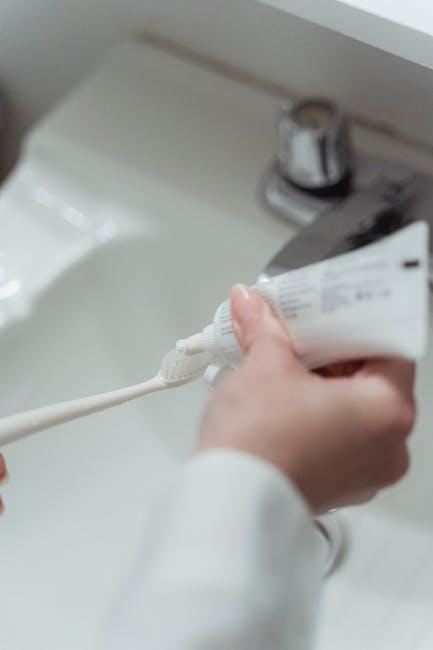
Fight over Fluoride Marks New Pain Point for Dentists – NBC Boston
In recent years, the dental community has encountered a new challenge that goes beyond traditional patient care—an intensifying public debate over the use of fluoride in oral health practices. As reported by NBC Boston, dentists across the United States are facing growing pressure and skepticism from patients, parents, and communities questioning fluoride’s safety and benefits. This controversy has created a fresh pain point in dentistry, sparking heated discussions about fluoride’s role in preventing tooth decay and the ethics of its use.
The Fluoride Debate: Background and Current Landscape
Fluoride has been widely recognized for decades as an effective agent in reducing dental cavities. It strengthens tooth enamel and reduces the risk of decay, contributing to significant improvements in dental health worldwide. Despite this, misinformation and fears about potential health risks have fueled a vigorous debate, putting dentists in a difficult position.
Key Points in the Fluoride Controversy:
- Health Concerns: Critics argue fluoride exposure may lead to health issues such as dental fluorosis, thyroid problems, or even neurological effects. However, scientific evidence supporting these claims remains inconclusive or limited to excessive fluoride amounts.
- Ethical Considerations: Some parents and community members are concerned about mass fluoridation of public water supplies, asserting it infringes on personal choice.
- Regulatory Responses: Multiple states and towns have debated or enacted restrictions on water fluoridation and fluoride use in dental products.
Why Dentists Are Feeling the Pressure
Dentists are trained to provide evidence-based care, and fluoride treatments have been a cornerstone of preventive dentistry. However, as fluoride skepticism gains traction, dental professionals face new challenges, including:
- Patient Hesitancy: Increasing numbers of patients question or refuse fluoride treatments, complicating treatment plans.
- Communication Barriers: Dentists must spend additional time addressing fluoride myths and explaining scientific data to concerned patients and parents.
- Professional Burnout: Navigating emotional confrontations or managing misinformation can contribute to practitioner stress.
The Benefits of Fluoride: What Science Says
Despite the controversy, robust scientific research continues to support fluoride’s benefits in oral health. Here’s a clear summary:
| Benefit | Description | Supporting Evidence |
|---|---|---|
| Cavity Prevention | Fluoride strengthens tooth enamel, making it more resistant to acid attacks from plaque bacteria and sugars. | Numerous clinical trials and epidemiological studies show significant reductions in cavity rates with fluoride use. |
| Remineralization | Fluoride can reverse early tooth decay by restoring minerals to weakened enamel. | In vitro and in vivo studies confirm fluoride’s role in enamel repair. |
| Public Health Impact | Community water fluoridation reduces the overall incidence of dental decay, improving oral health equity. | Organizations such as the CDC recognize it as one of the top public health achievements of the 20th century. |
Practical Tips for Dentists Handling the Fluoride Debate
For dental professionals navigating fluoride skepticism, communication and education play a vital role. Here are some practical strategies:
- Empathy First: Listen carefully to patient concerns without dismissal to build trust.
- Present Clear Facts: Use simple, evidence-based explanations supported by reputable sources like the ADA or CDC.
- Offer Alternatives: For patients refusing fluoride, discuss rigorous oral hygiene routines and other preventive measures.
- Stay Updated: Keep abreast of new research and guidelines to confidently address patient questions.
Firsthand Experience: A Dentist’s Perspective
Dr. Emily Richards, a general dentist based in Boston, shared her experience dealing with fluoride concerns:
“Over the past year, I’ve noticed a marked increase in parents asking questions about fluoride’s safety. While it can be frustrating, I see it as an opportunity to educate and engage in meaningful conversations. Sometimes, the discussion takes time, but helping families make informed decisions is worth it. It’s important to validate their worries while providing clear, science-backed information.”
Looking Ahead: The Future of Fluoride in Dentistry
The fluoride debate underscores the broader challenge of addressing misinformation in healthcare. As public trust fluctuates, the dental profession must balance respect for patient autonomy with public health priorities. It’s likely that the dialogue around fluoride will continue evolving, potentially influenced by new research, regulatory changes, and technological advancements.
Dentists who embrace open communication, stay informed about emerging evidence, and advocate for patient-centered care will be best positioned to navigate this shifting landscape.
Conclusion
The fight over fluoride use has introduced a significant new pain point for dentists, challenging traditional preventive practices with fresh skepticism and debate. While fluoride remains a scientifically supported tool in fighting tooth decay, dentists must now tackle the social and ethical dimensions of its use. Through compassion, education, and clear communication, dental professionals can help patients understand the value of fluoride treatments and guide them toward optimal oral health. As reported by NBC Boston, this evolving issue is shaping the future of dentistry and patient care nationwide.


